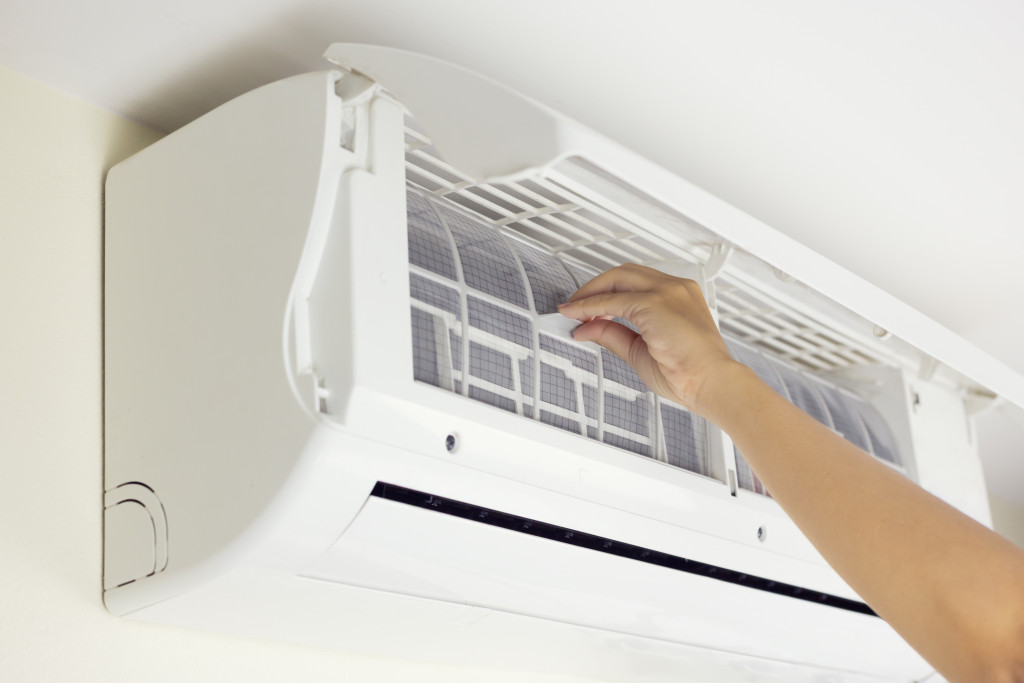Has there ever been more interest in the quality of indoor air at home than today? The coronavirus pandemic put many things in perspective, but none as much as the way we take care of our health and our homes. Never have we been as concerned about the quality of the air we breathe as we do now.
That’s why most of us are wearing masks and trying to distance ourselves from people. We know the air wasn’t as “pure” as it was once. We know we can get sick by simply standing next to people with SARS-CoV-2 because the air can bring droplets from when they talk or sneeze or cough.
And so, people are now more concerned about the air they breathe—both outdoors and indoors. They are specifically concerned about the quality of indoor air in their offices and homes. It’s not just about contracting the virus. It’s about the possibility of falling sick and compromising their immune systems. It’s more important than ever to stay healthy because one cough can send you to the emergency room and isolation facility.
The Role of Essential Oils During the Pandemic
If you look at the stock exchange, several health and wellness companies made strides even during the height of the coronavirus outbreak. People are not only concerned about the state of their health, but they’re also taking steps to be healthier. Essential oil companies also gained a lot during the pandemic. People are more inclined to believe health and wellness claims when their own mortalities are in question.
So, if you’ve ever seen people on your newsfeed talking about essential oils, it’s because this has been such a huge hit among homeowners lately. Tea tree oil, lavender, eucalyptus, orange, lemon, and grapefruit have antimicrobial properties that supposedly remove toxins and germs from the air. Homeowners diffuse these oils to no end not only because they smell good but because they believe that these oils work.
Do they? Well, essential oils aren’t perfect. They cannot replace HEPA air filters and the simple act of duct cleaning to improve indoor air. But studies showed that the effects of essential oils linger in the air for about an hour or two. They can counter the effects of air pollution and some of them may even destroy airborne germs and bacteria. It is their lasting effect that is in question. How long can the presence of essential oils protect your home and improve its indoor air quality?
The Best Ways to Improve Indoor Air

The Environmental Protection Agency (EPA) noted that there are three basic strategies when one wants to improve indoor air quality. These strategies are: one, control the source; two, improve ventilation; and three, use air cleaners. A combination of these three will remove toxins, germs, bacteria, and other contaminants from the air.
Control the Sources
Homeowners need to figure out where the pollution is coming from. Is it from the asbestos? The gas stove? Are there other sources of toxins from inside the home? The sources have to be identified, so proper procedures can be done to eliminate them or reduce their emissions. In many ways, controlling the source of pollution is more cost-effective because increasing ventilation will result in higher energy bills.
Something as cleaning the air ducts can improve the quality of air inside the house. As you well know, air ducts can carry a lot of germs, dust, and bacteria. Regularly cleaning them will make a huge impact on indoor air quality.
Improve Ventilation
The quality of indoor air is poor because it circulates in a cramped space such as a house. The solution is to let outdoor air in by opening doors and windows. Is this smart during a time of pandemic? Yes, definitely. The virus that causes Covid-2019 is transmitted through respiratory droplets. There is little to no evidence that airborne transmission is possible.
Use Air Cleaners
You can get affordable or expensive air cleaners with HEPA filters. It all depends on what you can afford and the effectivity of the devices. At the most, table-top air cleaners are not as effective as whole-house systems that can collect pollutants and clean and filter the air. These devices can last for many years, depending on how well you take care of it. Following the manufacturer’s care instructions will help improve its lifespan.
Although times are different and difficult now, the coronavirus should not be the only reason for you to focus on improving the air inside your house. The poor quality of indoor air has been a problem for many years now. It had to take the coronavirus for people to figure that out.

